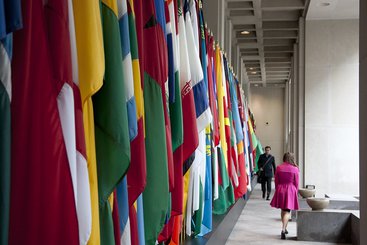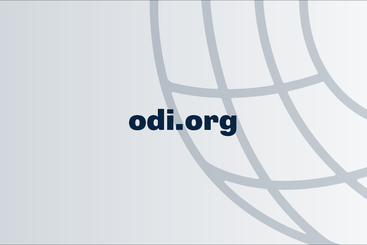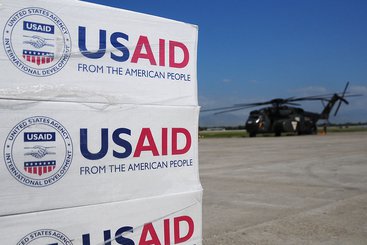Last month the OECD convened a two-day roundtable to discuss how to respond to the Covid-19 crisis and how best to advance the uptake of a people-centred approach to justice, one that starts with the everyday justice problems people have rather than the needs that lawyers have historically focused on. As my ODI colleagues and I noted last year, while Covid-19 lockdowns are inflaming gender-based violence and there is an urgent need to look to diverse justice systems, the crisis has provided beacons of hope with many countries showing they are capable of rapid and radical policy responses for justice.
The case for re-setting OECD priorities
Bringing a finance perspective to this gathering of 30, mainly OECD, countries, I noted that our estimates revealed the costs of a basic people-centred system of justice for a typical OECD country to be less than 2% of total government budget, just half of the 4% share that OECD countries on average spend on law and public order functions. So for OECD countries the question of financing people-centred justice is primarily a matter of reprioritising existing budgets.
Our analysis also revealed that the key, frontline aspect of people-centred justice – community-based justice advice and assistance – costs just 1% of current OECD spend on law and public order. Funding these frontline workers should be affordable even during times of budget cuts. And prioritising their work makes sense given their relative cost effectiveness.
In our new paper we estimate the benefits of broad investment in people-centred justice in OECD countries are four times its cost. The benefits of targeted investment in community-based justice advice and assistance are much greater. The OECD’s recent white paper on Building a Business Case for Access to Justice (pdf) notes multiple examples of where such targeted investment yielded benefits 10 times their costs – and in one case 33 times. I concluded by switching the focus to low-income countries.
The scale of the financial challenge in low-income countries
In these countries frontline providers of justice advice and assistance at the community level (often paralegals / community justice defenders) are a key and affordable component of people-centred justice, costing just 40 cents a person on average. However even if low-income countries maximised the amount of taxation they raised, in line with what the International Monetary Fund (IMF) and World Bank think is economically feasible, they could only afford a quarter of the costs of basic people-centred justice system.
As OECD countries press ahead with people-centred justice in their own countries, it would be good to reflect on the role they can play to support those low-income countries who also want to adopt a similar approach. Now OECD countries support for justice is low, less than 2% of all its aid. Its support is also falling, by one-third in the last five years. And most of its support is for middle-income countries. As a result, in low-income countries while health aid amounts to $11 per person, justice is just 40 cents. And the small amount of justice support that is given rarely prioritises the delivery of people-centred justice.
Sierra Leone shows what is possible
As my ODI colleagues and I noted in January there is a clear case for putting 'justice front and centre' of our efforts. And as our new paper shows, if all OECD aid to low-income countries were better focused, this would be enough to cover the costs of providing justice assistance and advice for all. And encouragingly our research has revealed new approaches to justice advice and assistance in low-income countries. Sierra Leone’s new, mainly government-funded, Legal Aid Board is a good example.
The board has scaled up community-based justice advice and assistance by a factor of 10 and done so affordably, reducing unit costs by a factor of five, compared to previous donor supported programmes. However, despite this progress, and the level of government commitment, the board can still only afford to reach one-third of the everyday justice needs.
How to better target OECD support to low-income countries
Our new paper has sought to learn how other sectors have scaled up their services. Building on the call for a new global fund in the Task Force On Justice's report Justice for All, we recommend channelling donor funds through a results-focused global fund, targeted on funding country-led approaches to scaled up community-based justice advice and assistance.
As OECD countries drive forward the transformation of their own justice systems, it would also be good to reflect on how best the OECD can support countries that are equally committed to such reforms, but who lack the finance to make that a reality for all.



